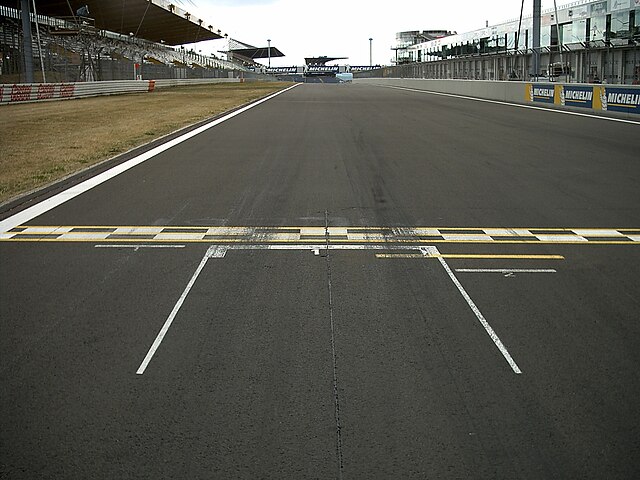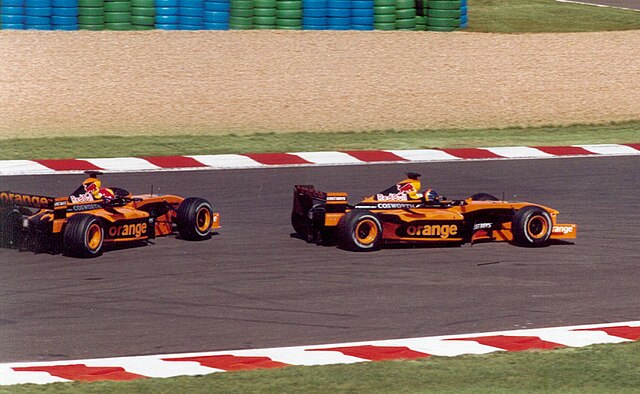In a motorsports race, the pole position is usually the best and "statistically the most advantageous" starting position on the track. The pole position is usually earned by the driver with the best qualifying times in the trials before the race, although penalties may award it to the second fastest driver, as the pole position is statistically awarded to the driver starting in first position. The number-one qualifying driver is also referred to as the pole-sitter. The pole position starts the race "at the front of the starting grid. This provides the driver in the pole position the privilege of starting ahead of all the other drivers".
Pole position markings at the Nürburgring in Germany
The 107% rule is a sporting regulation affecting Formula One racing qualifying sessions. During the first phase of qualifying, if the circuit is dry, any driver who is eliminated in the first qualifying session and fails to set a lap within 107% of the fastest time in that session will not be allowed to start the race without permission from the race stewards. For example, if the fastest Q1 lap time was 100 seconds, each driver who is eliminated in the session must complete at least one lap within 107 seconds to guarantee a race start.
The 107% rule was introduced for the 1996 season and remained in force until 2002. It was reintroduced for the 2011 season with minor modifications due to the knock-out qualifying format.
The Arrows team deliberately failed to qualify for the 2002 French Grand Prix due to financial problems.


